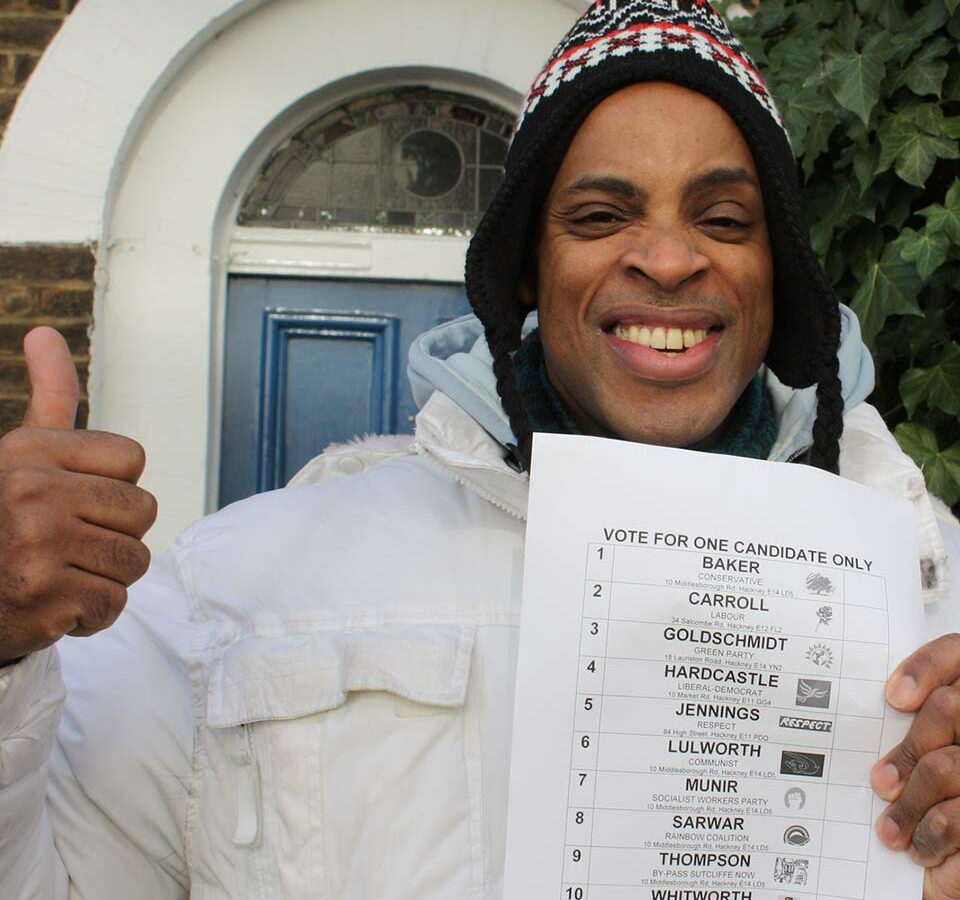But, although this is a right in the UN Convention on the Rights of Persons with Disabilities, the Electoral Commission estimates that one in four people with learning disabilities are not registered to vote.
Now, a rule change designed to prevent voter fraud and introduced in the Elections Act last year could make voting even more difficult.
Voters will need to show photographic proof of identity. This rule applies to local council elections in England, parliamentary by-elections, and police and crime commissioner elections in England and Wales. From October this year, photo ID will also be needed at parliamentary general elections.
This could be a problem for those who do not have an approved form of photo ID such as a driving licence (including a provisional licence) or passport, or those who are unaware they can use their freedom pass, disabled person’s bus pass or blue badge photocard. ID that is out of date can be used if the photo still looks like the person.
People who do not have an accepted form of photo ID can apply online for a free voter ID, called a voter authority certificate, by 5pm on Tuesday 25 April to vote in the local elections. They need to be registered to vote first.
Mark Brookes, advocacy lead at support provider Dimensions, has previously reflected the concerns of many when he warned that the introduction of photo ID had “worrying implications for voter participation.”
The Electoral Commission has acknowledged how “some groups are more likely to experience barriers with this change and may need support to access photo ID”.
To address this, it has put information packs for organisations on its website, including resources to support disabled voters as well as an easy-read booklet.
Barriers at the polling station
The need to show photo ID is not the only barrier to voting.
Other problems include a lack of easy-read information on voting and elections, inaccessible manifestos and physical barriers for voters with a mobility, visual or hearing support need.
For example, research among 2,000 people by support provider United Response in 2021 showed that nearly half agreed polling stations should be made more accessible to people with physical or learning disabilities.
Only two-thirds of these respondents knew people with learning disabilities had a legal right to vote, while 36 said they had been turned away from their polling station because of their disability.
United Response is among the learning disability charities that produce accessible voting guides or signpost people to any available easy read manifestos. Its Every Vote Counts project raises awareness about voter participation.
Another effort to encourage people to take part in elections is the Love Your Vote campaign run by Dimensions. Mencap produces easy-read voting materials and has worked with the Electoral Commission on accessible guides.
Dimensions, Mencap, United Response and Ambitious About Autism recently launched the My Voice My Vote campaign to boost awareness about voting ahead of next year’s general election.
With photo ID on the horizon, local and regional projects like this are crucial alongside more general, national campaigns
As Brookes warned: “As the bar to accessing paid support gets ever higher… those in need of support but not in receipt of any will inevitably be the most disenfranchised by any additional barrier blocking our path to voting.”
Some groups are more likely to experience barriers with this change and may need support.





